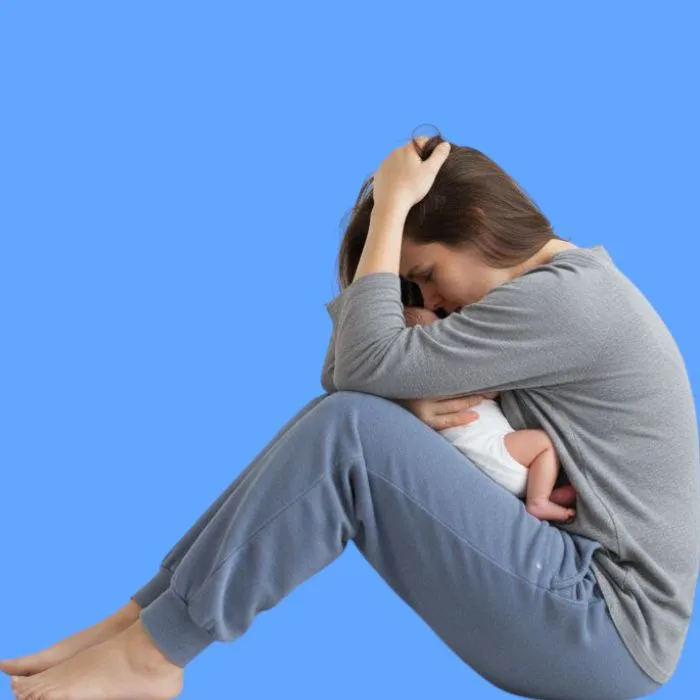What is postpartum depression?
Postpartum depression is a mental health condition that affects some mothers after childbirth due to hormonal, physical, and emotional changes that impact their psychological and emotional balance.
What are the causes of postpartum depression?
Several factors can contribute to this condition, including:
- Sudden hormonal changes after childbirth.
- Lack of sleep and physical and mental exhaustion.
- Family or marital stress.
- A history of depression.
- Insufficient psychological or social support.
What are the common symptoms of postpartum depression?
A range of signs may indicate the condition, such as:
- A persistent feeling of sadness or isolation.
- Loss of pleasure and interest in daily life.
- Sleep or appetite disturbances.
- Persistent fatigue without a clear cause.
- Negative thoughts about oneself or the baby.
When should you see a doctor?
It is advisable to consult a doctor if you experience the following symptoms:
- Sadness or anxiety persists for an extended period.
- Inability to care for the baby or yourself.
- Thoughts of harming oneself or the newborn.
- A gradual deterioration in mental health.
- Lack of family or social support.
How is postpartum depression diagnosed?
The illness is diagnosed through a series of psychological tests and assessments, including:
- A clinical interview with a psychiatrist.
- Using postpartum depression rating scales.
- Ruling out organic causes such as thyroid disorders.
- Analyzing the mother's psychological and social situation.
What are the treatment options for postpartum depression?
Treatment options for this disorder include:
- Individual or group psychotherapy.
- Using antidepressants under medical supervision.
- Ongoing family support.
- Adequate rest and sleep.
- Engaging in activities that help improve mood.
Can postpartum depression be cured?
Most sufferers can fully recover with adherence to treatment, which includes:
- Regular follow-up with a psychiatrist.
- Adherence to prescribed medications.
- Psychological support from family and community.
- Attention to overall health and mental well-being.
What are some tips for preventing postpartum depression?
The risk of developing postpartum depression can be reduced by following these tips:
- Preparing yourself psychologically before giving birth.
- Expressing your feelings honestly and without shame.
- Eating a healthy and balanced diet.
- Exercising regularly.
- Seeking support from loved ones when needed.
What are the potential complications of postpartum depression?

Neglecting treatment can lead to various complications, such as:
- Depression becoming chronic.
- Disruption of the mother-child relationship.
- Regression in the infant's emotional development.
- Severe marital or family problems.
- Risk of developing subsequent mental health disorders.
Frequently Asked Questions about Postpartum Depression
Is postpartum depression normal?
It is common among mothers and requires treatment and support.
Does the illness affect the baby?
Yes, if left untreated, it can affect the mother-child bond.
Can the depression go away without medication?
Sometimes, if appropriate psychological support is provided.
Can it recur in future pregnancies?
Yes, if it was not properly addressed previously.
Does breastfeeding alleviate depression?
In some cases, it can help improve mood thanks to hormones.
Article Summary
Postpartum depression is a sensitive experience that needs understanding and support, not judgment or neglect.
Early treatment, self-care, and seeking professional help are essential for recovery.
Always remember that your mental health is the most important step in raising a happy and well-adjusted child.